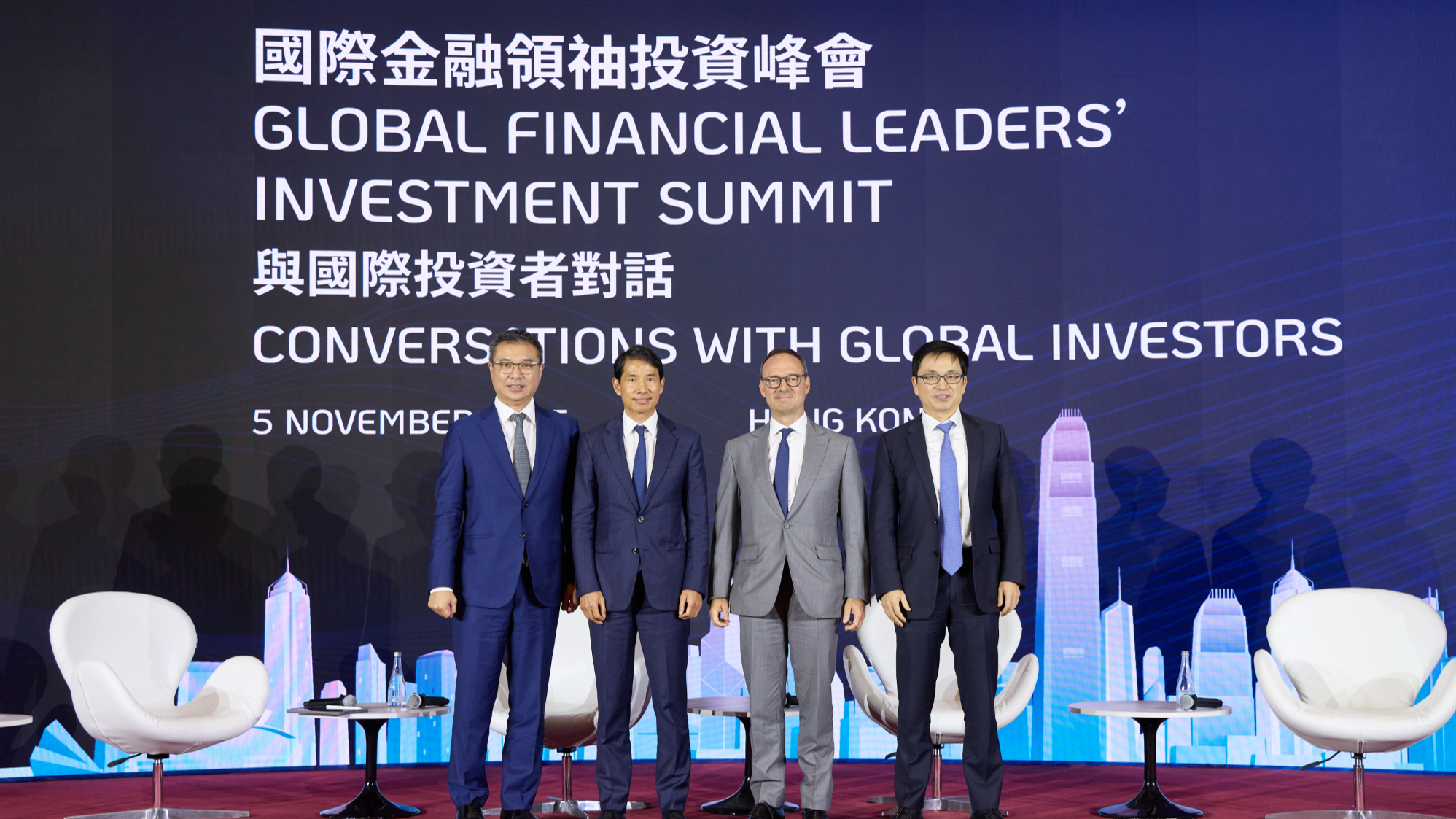
Chinese and overseas investors are recalibrating their view of the Chinese mainland and Hong Kong markets, encouraged by policymakers’ renewed push for deeper reforms and the sheer momentum of homegrown innovation.
“I am actually very bullish on Hong Kong as a result of what’s going on in the world’s second-largest economy,” EQT Asia Chairman Jean Eric Salata said during a panel discussion at the Global Financial Leaders’ Investment Summit in Hong Kong on Wednesday.
Having made Hong Kong his home since 1989, the Chilean-born investor sees a wave of opportunities emerging from the Recommendations of the Central Committee of the Communist Party of China for Formulating the 15th Five-Year Plan for National Economic and Social Development.
READ MORE: Chan: Foreign IPO investment in Hong Kong hits five-year high
Efforts to ease capital flows, attract more foreign investment and further open its services sector are “really going to benefit Hong Kong,” in addition to the push for innovative manufacturing, investment in technology and artificial intelligence (AI), and a pivot toward domestic consumption, he said.
This optimism was shared by Fred Hu, founder, chairman and CEO of Primavera Capital. Hu said that “there’s far more upside in coming years for Chinese capital markets”.
Hu recalled the long and arduous journey of China’s stock market — from a modest player with a total market capitalization of just $500 billion, only a fraction of which was freely traded, to the world’s second-largest market, after the United States.
“Capital markets are definitely going to transform China, ensure sustainable economic growth, and empower the country’s middle class to build retirement savings and enjoy the wealth effect,” Hu said.

Salata highlighted his recent visit to Beijing, where he was impressed by the robotic manufacturing in Chinese tech giant Xiaomi’s electric vehicle factory and other “mind-blowing innovation”.
This new generation of highly innovative companies are adding to the remarkable footnote to China’s growth capital and venture capital markets, he said.
“Many clients we talk to, particularly non-US clients, feel like they’re overallocated to (US) dollar assets. They’re looking at diversification and looking for ways to rebalance their portfolios,” Salata said. “I think the big beneficiaries are going to be Hong Kong and the Chinese mainland.”
READ MORE: Hong Kong sees 19% rise in family offices in first 5 months of 2025
Zhang Lei, founder and chairman of Hillhouse Investment, also sees the sheer power of innovation in China. Zhang, one of the early investors in today’s internet heavyweights such as Tencent and JD, expressed his belief that “China is probably going to be the first to deliver much more on the application layers” amid the global artificial intelligence competition.
This is expected to duplicate the success of Alipay and WeChat Pay in financial services, Meituan in delivery market, and Xiaohongshu on the social media front, riding high on the country’s quick, fast iterations, research and development efforts, massive real-world use cases, a low-cost business model and readily huge consumer markets in which new things always get tried, Zhang said.
Calling AI competition a “marathon”, Hu underscored his confidence that “China will be a leader in the AI revolution”.
Contact the writer at sophialuo@chinadailyhk.com


